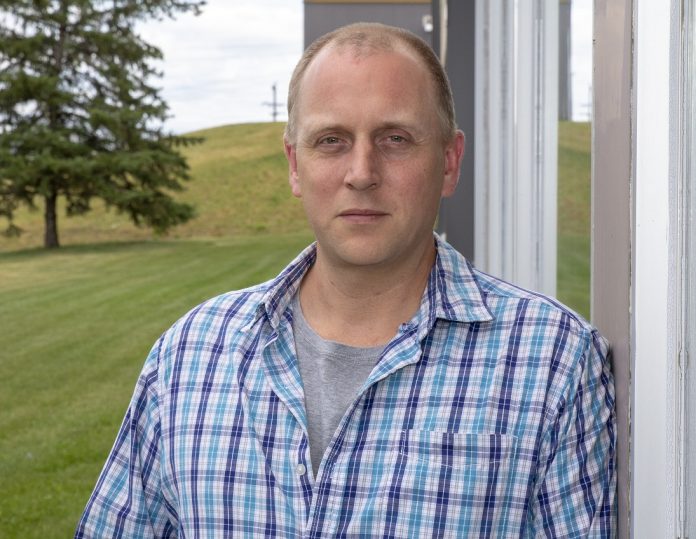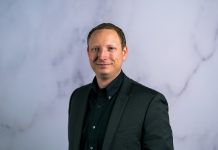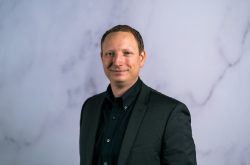
BRANDON, Man. (Aug. 31, 2018)— Life for Elizabeth Mukwimba, a 62-year-old Tanzanian farmer, has become much easier, thanks to a graduate of Assiniboine Community College and the work he does with the international development community.
In a video posted on YouTube, Mukwimba describes how a new cooking stove and access to solar energy have changed her life for the better.
“Having an energy-efficient cookstove has made a huge impact. The difference with solar is also huge! We used to have to use kerosene for lighting. With the price of kerosene always going up, solar makes a huge difference for people like me. It means my grandchildren can see to study in the night,” Mukwimba said.
Josh Sebastian, a 2009 graduate of the Land and Water Management program at Assiniboine Community College, has played a key role in bringing better cookstoves and solar energy to residents of rural Tanzania.
In the process, he has helped to rewrite the rulebook for international development with new approaches that deliver cash and prizes to people who get with the program.
Traditionally, “a lot of programs fixate on the people who are doing little and trying to get them to do something, not so much on the people who are maybe further advanced and are motivated to go further. It really comes down to a performance basis, where the more you do, the more you can get out of the program. Our program aims to set apart the walkers from the talkers.”
The skills he learned at Assiniboine, especially project management, helped Sebastian “create my own job,” first as an intern and then as a paid employee of SNV Netherlands Development Organisation.
The non-governmental organization has partnered in Energising Development, an energy access partnership currently financed by six donor countries: the Netherlands, Germany, Norway, United Kingdom, Switzerland and Sweden.
EnDev’s goal is to improve energy access and quality of life for rural Tanzanians – especially women.
Developing a better cookstove was a top priority because access to energy for cooking “continues to be at a shocking level of need in Tanzania,” said Sebastian, who leads both the cookstove and solar energy programs.

With more than 95 per cent of the national energy mix depending on firewood and charcoal, the country is losing its forests and suffering other negative environmental effects.
The process is also labour-intensive, with Tanzanian women and girls spending eight to 10 hours a day collecting fuel, preparing the meal, starting the cookstove and cooking the food.
Within the EnDev program, Sebastian worked with rural Tanzanian women to develop a new cookstove that could burn either charcoal or firewood and is 45 to 55 per cent more energy-efficient than the old ones.
The new cookstoves, made by micro and small entrepreneurs throughout Tanzania, perform as well as those made by large factories, but at 10 per cent of the cost.
In the past, stove programs would support subsidies and even free giveaways in reaching customers such as Mukwimba. But “the evidence on subsidies is they take hold and tend to cause more market distortion for local enterprise. If you’re not selling at a price that’s sustainable, what will happen is that as soon as that funding is gone, everything just collapses,” Sebastian said.
Instead, when the cookstove entrepreneurs sell a stove to someone like Mukwimba, they are eligible to receive points, which can be redeemed for equipment to support the growth, production capacity and asset base of their business.
“It’s like Air Miles for entrepreneurs,” Sebastian said in Brandon, where he has returned after eight years in Tanzania.
The program won’t pay for personal items, such as water hookups or school fees, but will entertain requests for “anything, as long as it’s going to assist with production. They can get anything from water storage tanks for ceramics to metal cutters and power tools to bicycles.”
Leading enterprises have gone so far as to combine their points with their own funds to invest in building full-scale production facilities and retailing centres.
The incentives have worked, creating a cluster of 60 small enterprises, employing more than 100 people full-time and another 200 part-time, collectively producing more than 2,500 stoves a month as a new product line within their enterprises.
Production of these specially-designed stove units has increased more than 2,000 per cent in five years, from 700 stoves in the latter half of 2013 to 15,000 stoves in the first six months of 2018.
EnDev takes a similar approach to expanding solar energy in Tanzania, rewarding companies who go the extra mile to hook up farmers such as Mukwimba, who live far away from conventional power grids.
“When we asked people what they wanted, there was a huge level of expressed demand for solar power in rural areas, in some places, exceeding 60 per cent of households. At the same time, we found only 3½ per cent had any type of solar product.”
Sebastian developed a private sector fund to stimulate the spread of solar power in the rural Lake Zone region, using Results Based Financing (RBF.)
Companies that meet the fund’s criteria can get direct financing – but only upon verified delivery of quality solar product sales to rural customers.
“Once you’ve earned it, you’re free to do what you want with it. It’s not like a loan or a grant. If you did something, you’ll get something. If you didn’t, you’re not going to get anything. They can shift it to helping their imports, marketing, to hiring staff, to covering salaries. If they decide they don’t like the fund, they can go on holidays for all we care.”
The only rule is that the company can’t use the money to provide a rebate or some other form of subsidy to the customer, as the financing available is temporary and the goal of the RBF is to ensure initial funding leads to a sustained business presence in these more challenging markets in the longer term.
The fund has attracted 15 local and international companies, which have installed their 73,000 solar products via support of the RBF, ranging from cellphone chargers and desk lamps to 200-watt systems that can power TVs or home lighting.
The RBF fund has further conditions that companies must engage local Tanzanians in sales and distribution of products to these markets, resulting in more than 1,000 persons being actively employed in solar businesses. With these employees, firms have continued to sell products widely after their initial RBF funds, to at least an additional 50,000 households thus far.
The change in approach results from a different philosophical perspective in the international development community.
“When you come in, you can feel pity for the poor. But they don’t want that from you. People take a sense of pride and ownership in being able to acquire goods and services on their own as much as possible, or in a way that’s affordable and viable to them,” Sebastian said.
His education at Assiniboine has made all the difference in finding employment in his chosen career, he said. “Colleagues I know who have specialized in international development programs have struggled (and often failed) to find meaningful employment of any kind. The skills from Assiniboine really set me apart from the pack, as I had practical and tangible abilities in agriculture, environment and project management,” he said









